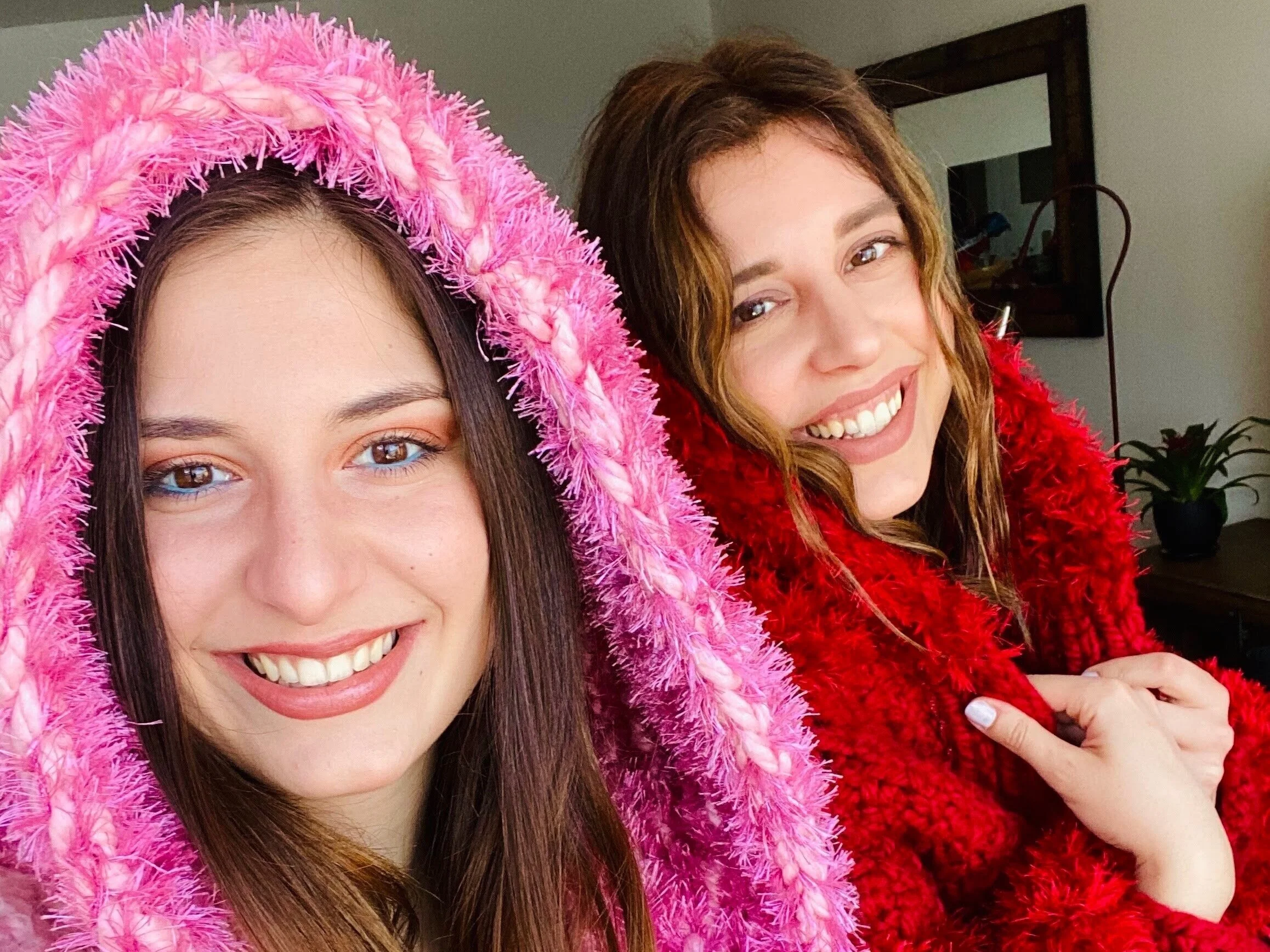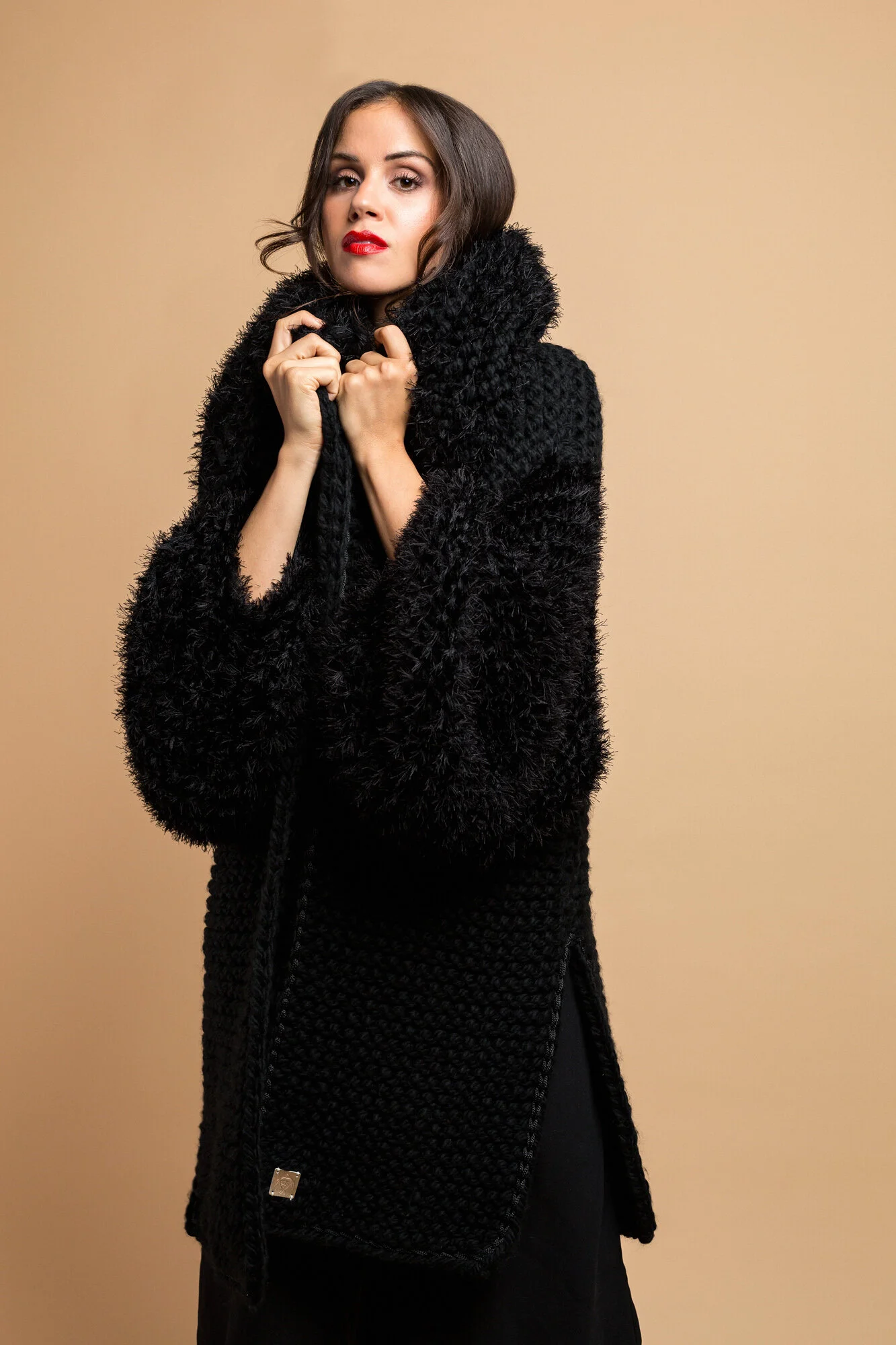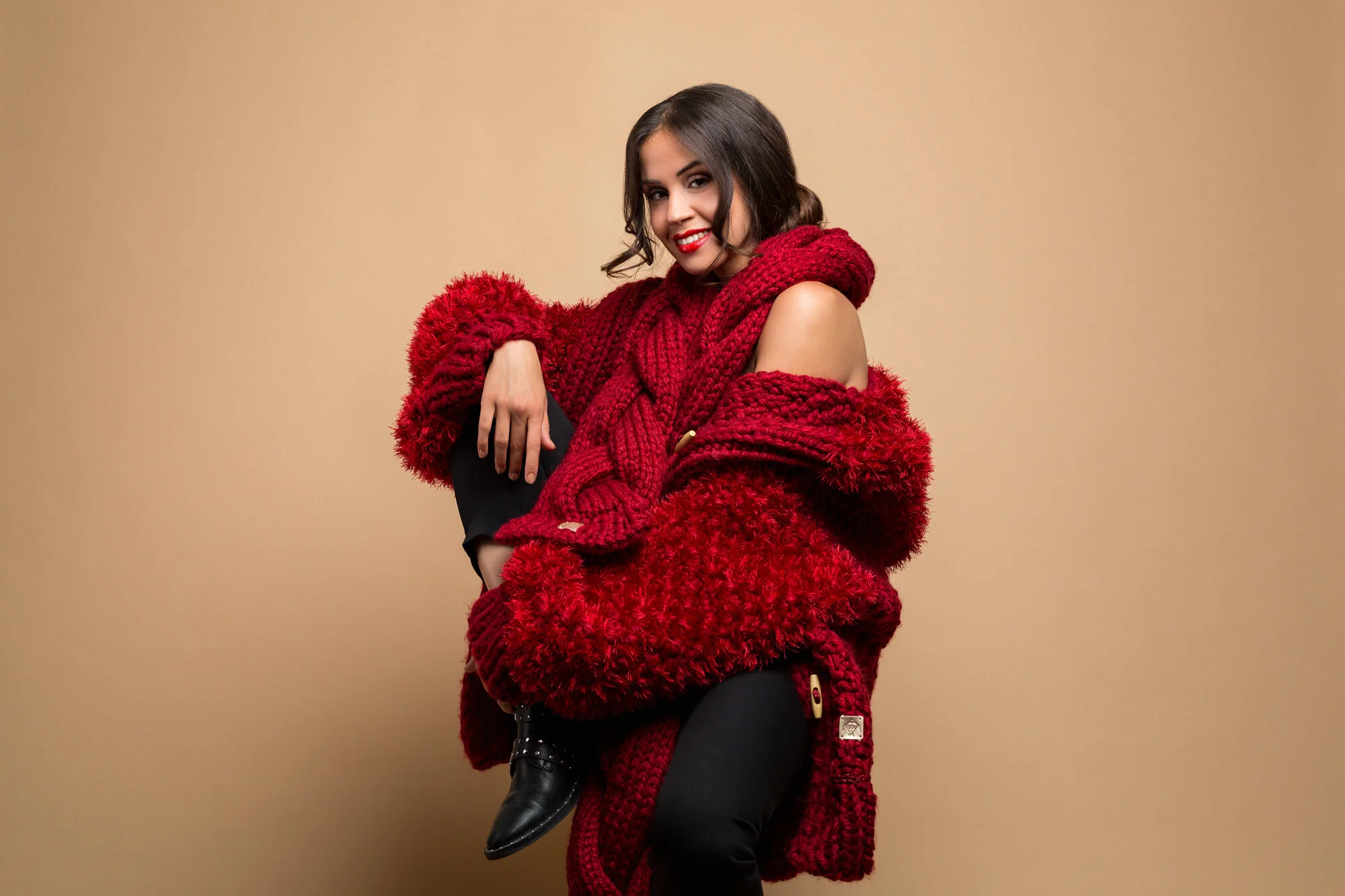A Millennial-Women Run Greek Brand, DGR. Educates Consumers On Sustainability
Joanne Mantzouridou Onasi and Sonia Mantzouridou Onasi of Delicate Greek Green Wear (DGR).
The classic of ancient Greek literature, the Odyssey, stresses that a journey is more important than the destination. If we think about sustainability as an Odyssey, the journey and the destination are equally important. We see the destination in our minds, conceptually, but what we experience is the journey, with many ups and downs. But what is a journey without a challenge and how do we navigate the rough waters?
Delicate Greek Green Wear (DGR).
Two Thessaloniki-born female millennial entrepreneurs, Joanne Mantzouridou Onasi and Sonia Mantzouridou Onasi took the challenge and started a journey with their clothing and accessories brand, Delicate Greek Green Wear (DGR) which specializes in 100% handmade jackets, coats, and handbags, featuring traditional Greek macrame technique that design-wise are inspired by nature. Joanne Mantzouridou Onasi shares the brands’ journey and purpose with me in a Zoom conversation.
DGR is envisaged not only as a fashion enterprise but also as a collective to shift the mindset of the current consumer culture to more conscious purchasing options and to educate people about sustainability and slow production. The brand does so humbly and mindfully.
“For us, it is very important to be humble and open to criticism. We don’t identify ourselves as experts, because we constantly learn. We want our customers to be a part of our journey, our co-creators, therefore, there’s no such thing as “us” (the brand) and “them” (the customers)”, says Joanna.
The brand embraces three aspects of sustainability: the business, the social purpose, and the care for the environment. From a social standpoint, the brand collaborates and employs highly-skilled artisans in need of work and women who know the Greek tradition of handmade clothes. Environmentally, DGR produces no waste. The materials are sourced locally, in Greece, which minimizes the emission of CO2 which would be required if the materials were transported from elsewhere.
Delicate Greek Green Wear (DGR).
All products are custom handmade, and they do not require operating machinery, which additionally saves energy. However, the use of colors in dyes is not entirely sustainable, and, as Mantzouridou Onasi says, “I’ll be honest with you, we keep trying to produce no waste and to be as sustainable as possible, but we’re not there 100% yet. It is a part of the journey”. Business-wise, the brand promotes circularity, which shows up in several domains of the brand.
Everything starts and ends in a circle
DGR promotes a “sustainable mindset”, which is making ambitious and long-term decisions that promote the longevity of the business and the product. This can only be achieved by implementing circularity into the business DNA of the brand.
First, there’s circularity concerning tradition. The pillars and inspiration behind the brand are Greek women. They are strong, enduring and they carry history on their shoulders. As it is a part of Greek tradition, Greek women learn from their grandmothers, who weave the fabrics to be passed onto their daughters on their wedding day. Joanne and Sonia are no exception to that.
They received the garment-making skills from their grandmother, and they hope that the tradition weaved into their brand will serve as an inspiration for other potential female entrepreneurs in Greece.
When it comes to DGR fashion, tradition also means originality and value; it adds distinction to style and makes a purchase purposeful and a joyful experience. To keep the tradition going, the hope is, if the brand gets bigger, to implement a mentoring program, where the currently employed artisans would mentor the incoming ones.
Apart from tradition-sharing, circularity can be observed in the way the brand “promotes” itself. “We want to challenge the common perspective in social media and in marketing, where the way you look is never good enough. Since we are creating an enduring style wearable more than once, we don’t believe in classic advertising. Instead, we believe in mouth-to-mouth advertising: we do something for you, and you share your experience with your friends. In this way, we constantly learn and educate, as well.”, explains Joanne.
Delicate Greek Green Wear (DGR).
When a “consumer” becomes a “collaborator”
DGR fashion is an experience, so it comes as no surprise that “consumer” is not a satisfactory term for someone who shops the brand. The word “consumer” evokes a person who mindlessly accumulates goods without necessarily thinking about their value. A person who thinks about the consequences of their purchase as well as its value, in a way, “collaborates” with the brand. This is particularly evident with smaller brands where each customer is more than just a number. “For us, the customer has power, and what they say makes us think about how we do our business”, adds Joanne Mantzouridou Onasi.
So, what are the main characteristics of the DGR “collaborator”? It is a person who wants something different and who wants to be stylish, and, sometimes, a bit eccentric. For instance, the DGR coat is a garment and an accessory at the same time. The key is in minimalism: wear as little as possible, wear it easy, but make the most of it. Additionally, the clothes are inspired by the Greek culture, so if you love Greece, but haven’t been there yet, DGR fashion will give you a taste of this historic cradle of the European culture.
Delicate Greek Green Wear (DGR).
Redefining Desirability
One of the problems of fast fashion is the need for instant gratification, which is what clashes with sustainability values. The sustainable mindset, on the other hand, goes for saving money in the long run by investing in a piece that will last long. The external beauty, in Joanne’s view, is overrated. “European culture places a lot of emphasis on how one looks. And the capitalist-oriented businesses thrive on this because their main goal is profit, which they enhance by projecting “You’re not good enough” messages in the media”, explains Joanne. Instead, she continues, “empowering women to go back to the basics, to educate themselves about the organic and natural means putting the energy into something valuable. Education can eventually relieve the stress about how women look”.
There is also a myth about eco-friendly fashion being boring. “You just have to find the right brand. Some brands understand sustainability holistically: in packaging, message, and lifestyle. The design can either be feminine or not. I think, when it comes to fashion, people object more to sustainability, and this is culturally conditioned, whereas when it comes to applying sustainability in other fields, they are more tolerant, but that’s OK. I think we should give people time to object”, says Joanne.
Nature as a design inspiration
Writers and designers can have a creative block, but nature is a constant source of inspiration.
“Our designs comply with biomimicry, we get inspired by nature. For instance, bags remind us of hedgehogs, and coats are inspired by owls,” says Joanne. As a small brand, DGR can remain loyal to its design, which doesn’t change from season to season. “This is a privilege that bigger brands in fashion do not have since they are under constant pressure to keep changing”, explains Joanne.
The Future
I asked Joanne how she sees the future of fashion. She thinks virtual try-on and online shopping is the future, as well as further virtual reality assisted fashion shows. Smaller brands and local manufacturers will come to the forefront, and they will need to find a way to gain the trust of the shopping community. Is sustainable fashion just a passing trend? “Only the time will tell”, says Joanne. “We need to wait 5-10 years to really see the effects of sustainability efforts, but for sure, more and more people will embark with us on this journey.”
If you are interested in joining the journey with DGR and get educated about sustainability in the Greek style, visit: https://www.degrwear.com/present-future/
Featured













The shoppers should expect great discounts, and the price of many products will fall up to 90% on selected products of various categories.